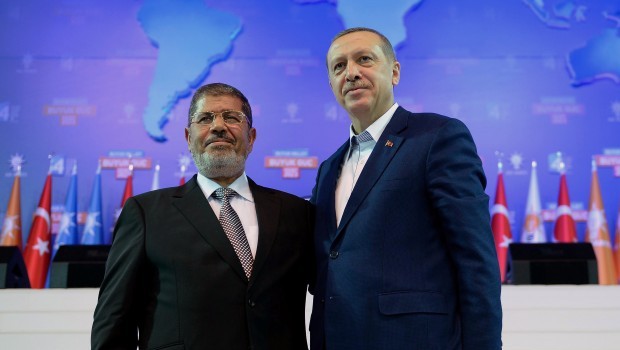Discussing Egyptian–Turkish ties years ago, a diplomat jokingly said that the difference between the two countries lies in their Islamic history. While Egypt was ruled by the Mamluks, Turkey is of Ottoman heritage. Both countries had similar history, with only one difference: Following the defeat of Tuman Bay, the last Mamluk leader, at the hands of Sultan Selim I in 1516, Egypt was transformed from an independent state to an Ottoman province. Later on, however, Muhammad Ali Pasha would rebel and declare Egypt and independent province for him—and his dynasty, which ended with King Farouq—to rule. Similarly, Atatürk shunted aside the Ottomans, transforming Turkey into a modern republic.
Both countries share much heritage. However, the difference in their social structures and the modern historical experiences has not caused a conflict of interests between the two countries. It is no secret that the Egyptian elite—and even the public—admire the Turkish record and Erdoğan’s efforts to involve Islamism in the democratic process, as well as his economic success. In fact, the country’s economy is among the world’s major developing economies, ranking 17th in the world, with Turkey being a member of the G20, the association of major economies.
It was natural for Turkey under Erdoğan to show interest in its neighbors, particularly on the economic level, without compromising its efforts to secure a place in the EU. Besides this, Turkey adopted the “zero problems with neighbors” philosophy formulated by Ahmet Davutoğlu, Turkey’s foreign minister, resulting in a firm relationship with the regime of Bashar Al-Assad before the surge of the “Arab Spring” in addition to the series of deals which revived investment and commerce in the region.
Sometimes, movement in the Middle East is like walking on quicksand. Problems escalated in one go, annulling the “zero problems with neighbors” philosophy, with Turkey becoming a major player in the Syrian conflict and, previously, in Libya. At the request of the regional players, Turkey entered the conflict as a strong regional player, a move seen as necessary to achieve positive equilibrium.
In Egypt, the situation was different given that the January 25 revolution was mostly, despite the violence that sometimes erupted, an internal affair. This is not to mention the fact that Egyptians are well known for their sensitivity over outside interference in their internal affairs. However, with the arrival of the Muslim Brotherhood to power, the relations between the two countries altered due to the Islamist background of the ruling parties in both countries. This opened the door for unfounded speculations over a new alliance being forged in the Middle East based on religious principles.
Many based their interpretations of Erdoğan’s outrage following June 30 in Egypt, which saw the military acting in favor of the millions who took to the streets demanding the removal of the former president Mohamed Mursi on these speculations. Many Arab and Western analysts have claimed that Turkey is the biggest loser in the whole affair, especially after it planned to forge a new regional alliance. They have also claimed that Erdoğan was like a new Ottoman sultan, building alliances in the region, and that what happened in Egypt thwarted his ambitions.
In fact, such claims are, in part, imaginary. Neither Turkey in the 21st century nor the entire region can become a new Ottoman empire. Moreover, Egypt does not accept subordination—not to mention the public’s extreme sensitivity over any foreign actor interfering with the country’s internal affairs.
The Turkish reaction to Mursi’s overthrow can be seen in the unjustifiably extreme outrage of Erdoğan himself and his autocratic methods in tackling some issues. That includes his stubborn stance on the development project in Gezi Park, which should have been left for the city’s municipal directorate to tackle rather than the prime minister.
Erdoğan’s unjustifiably extreme reaction can be interpreted based on his understanding of politics, which he shares with Mursi, namely if one comes to power through the ballot box, one can do whatever they want until their term comes to an end. This is what led to Mursi’s overthrow. Mursi failed to reach a national consensus over issues that should be agreed upon. The Brotherhood still use this understanding of politics as a pretext, rejecting what happened despite the millions that filled the streets. It was difficult for the military to ignore public desire for change, particularly at such a transitional period, with people still learning how to practice politics. People may find that they made the wrong choice or have been deceived. Accordingly, they worried about the government’s failed performance and attempts to alter the identity of the state and its institutions.
We should hope that Erdoğan’s outrage is only temporary. The Egyptian–Turkish ties should be larger than individuals. Moreover, what is needed is a clearer understanding of the proportion and identity of both sides, as well as the geographical and political realities governing the interests and the foreign policy of each country.
